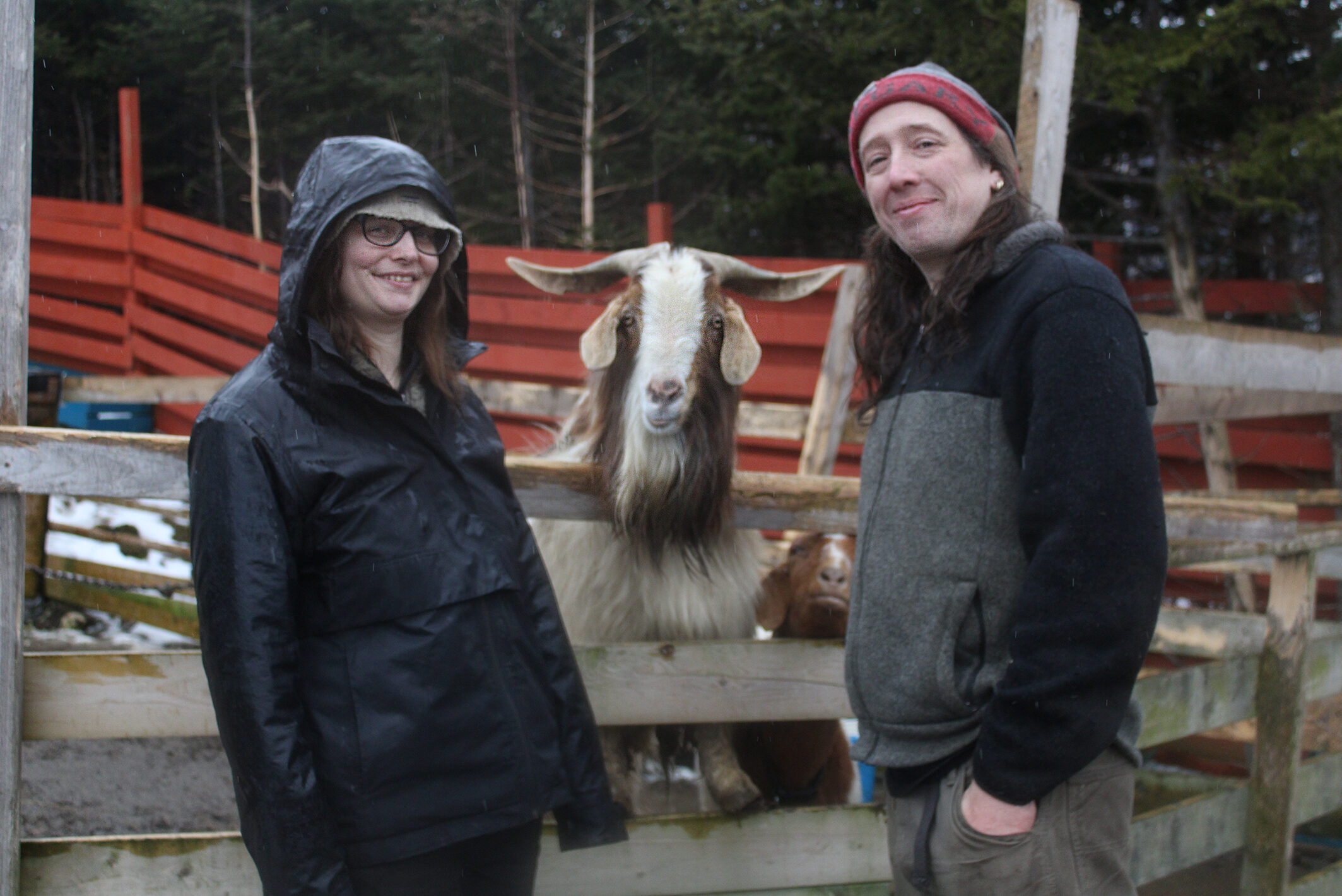Homesteading in the countryside or in a small basement apartment is becoming more common as the cost of living keeps rising.

Arlette Lazarenko
Kicker
When you first enter the McBride’s property, you are greeted by a choir of gobbling turkeys.
Steve McBride, a tall man with shoulder-length hair, stands next to his wife Lisa. Their knee-high boots are covered in mud. He works from home as a coin collector, she works part-time as a nurse, but they are full-time southern shore homesteaders in Mobile.
Almost a decade ago, says Lisa, they escaped the high cost of living in Vancouver and bought the acreage just they now stand on.
“All that you see is an accumulation of baby steps,” Lisa said about their homestead that is 30 minutes outside of St. John’s.
They built their farm with their own hands and by trial and error. Slowly for the past eight years they built fences, beehives, a hen house and garden beds, which are scattered around their land.
Homesteading is the practice of relying less on the food in a store aisles and instead choosing to grow it, from the seed, in one’s backyard. The practice is becoming more common as the cost of living keeps rising.
For the couple, the choice to be homesteaders isn’t only economical.
Next to the turkeys, inside a fence, there is a large horned goat named Cornelius. He is one of the first goats the couple bought. Surrounding him are the female goats and their offspring. Sunflower, one of the baby goats, squeezes behind the adult goats as Steve goes around giving them pieces of bread.
Steve and Lisa talk about their animals the same way someone describes the latest doings of family members. Like any parent, they smile when they talk about their animals’ accomplishments and laugh about their antics.
But there is one thing that differentiates them from most kids, says Steve.
“They do pay their rent,” Steve said letting out a hearty laugh.
During the spring and summer season, they get their food completely from their farm – milk and cheese from the goats, eggs from the turkeys, and honey from the bees. What they can’t grow they forage or trade with other homesteaders.
The couple believes anyone, practically anywhere, can homestead.
“This is also what I say to people who don’t have time to learn everything – you don’t need to,” said Steve. “You can learn one or two things and then you can trade with other people.”
The couple has a Facebook group with over 40,000 members. They do workshops and events where they teach various homesteading skills.
Lisa says the interest in being self-reliant is growing.
“Homesteading also connects the community,” she said.
Homesteading creates authentic experiences that bonds people together, she says. When someone makes honey, they can trade with someone who hunts moose meat, for example. Then connections are strengthened. When people know they can rely on one another it creates a sense of well-being and belonging.
One member of their Facebook group proves one doesn’t need land outside the city to be a homesteader.
Megan Seabrook works in Chapters in St. John’s. The bookcase in her apartment starts from the floor and reaches the ceiling, almost all the books are about gardening. Next to it is another towering bookshelf containing rows of rubber boxes full of plants.
Her small basement apartment is a complete contrast to the snowy day outside. It’s green and plentiful, like stepping into a garden that also happens to have furniture.
“It’s always been a passion of mine, but the pandemic was the shock I needed to take it seriously and start growing,” said Seabrook. “I’ve been doing this for almost three years now”
Seabrook cleverly uses every inch of her apartment. In one room she has an aquaponic system where she has connected a system of pipes to an aquarium with guppies. The waste from the fish
With rising food prices, she believes more people will take up some form of homesteading. Especially in a province that isn’t too far from a generation that survived working the land and fishing the waters.
“I think there is an interest in reclaiming those skills before they are lost”




Be the first to comment